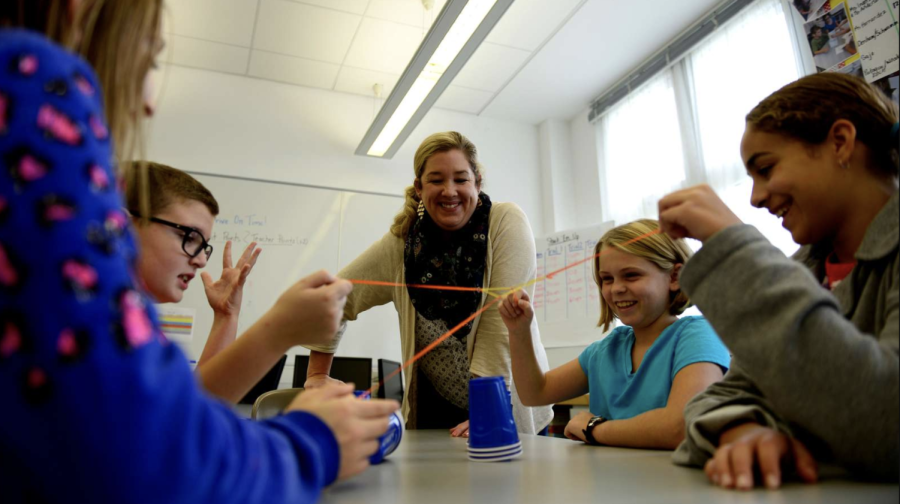Is gifted burnout a real issue among students?
Defense Visual Information Distribution Service
Gifted Burnout is a real effect on students causing physical exhaustion, mental fatigue, and emotional detachment.
“Gifted burnout” is a term that has been thrown around in recent years regarding gifted students. It is defined as “chronic exhaustion that stems from a mismatch between the individual and their current educational environment” according to The Davidson Institute, a non profit organization dedicated to the development of young gifted people. In simple terms though, burnout occurs when a student becomes tired of dealing with pressures of perfectionism placed on them at a very young age. Due to this constant stress, they are left facing challenges with their mental health and well-being later on in life.
“There’s a lot of different ways I’ve seen the burnout,” English teacher Mrs. Lauren Tocci said. “There seems to be not a lack of resilience but a lack of coping skills when they don’t get an A, and I think that’s where the burnout really lies, is in thinking an ‘A’ is the only measure of success and not the growth that occurred.”
The Davidson Institute also says gifted burnout is often depicted as “physical exhaustion, mental fatigue, and emotional detachment. Students’ perfectionism, asynchronous development, and overexcitabilities may feed into the burnout experience in a way that increases the intensity or duration of burnout.” This idea of perfectionism within gifted students is what seems to worry some teachers.
“They’re so hard on themselves,” Mrs. Tocci said. “It’s actually the thing I think I’m most concerned about.”
Although some teachers are concerned about the negative effects of gifted programs, some students see the benefits, believing that the experience made them better students in the long run.
“My tenure with the program was extremely difficult,” senior Nathaniel Lycette said. “Although I believe…it provided me with challenges which led to my growth as a student.”
In the end though, there are some students who seem to feel that the gifted program has been detrimental to their academic careers and well being.
“It was very isolating growing up. My classes were separated from everyone else,” senior Kylie Baker said. “Everyone in high school talks about different experiences. They’ll talk about books, curriculum, and classes they’ve had, but as a gifted student, I couldn’t relate to any of that.”
This isolation that Baker talks about seems to have significantly harmed the academic performance of gifted students.
“None of us know how to study, or have the best work ethic,” Baker said. “When we hit high school, some of us realize we’ve reached our limit after our entire lives have been built around excess work – that is not more challenging work, just excess.”
Considering the pattern of perfectionism, lack of effort, and fitting in, it is definitely safe to say gifted burnout is a real thing. However, the future looks promising in solving the plague of burnout.
“It’s definitely a discussion point at training and conferences I go to,” English and gifted teacher Mrs. Amy Bausher said. “One of the things I’d like to do moving forward is asking gifted students what they are interested in and develop a goal they find interesting so they want to pour additional time into it and work towards it.”
With this goal set by Mrs. Bausher, the future for gifted students may help them combat their burnout.
Senior Jack Steckel is a first-year staff reporter for the Spotlight. In addition to playing for the lacrosse team, he participates in FBLA and Varsity...


